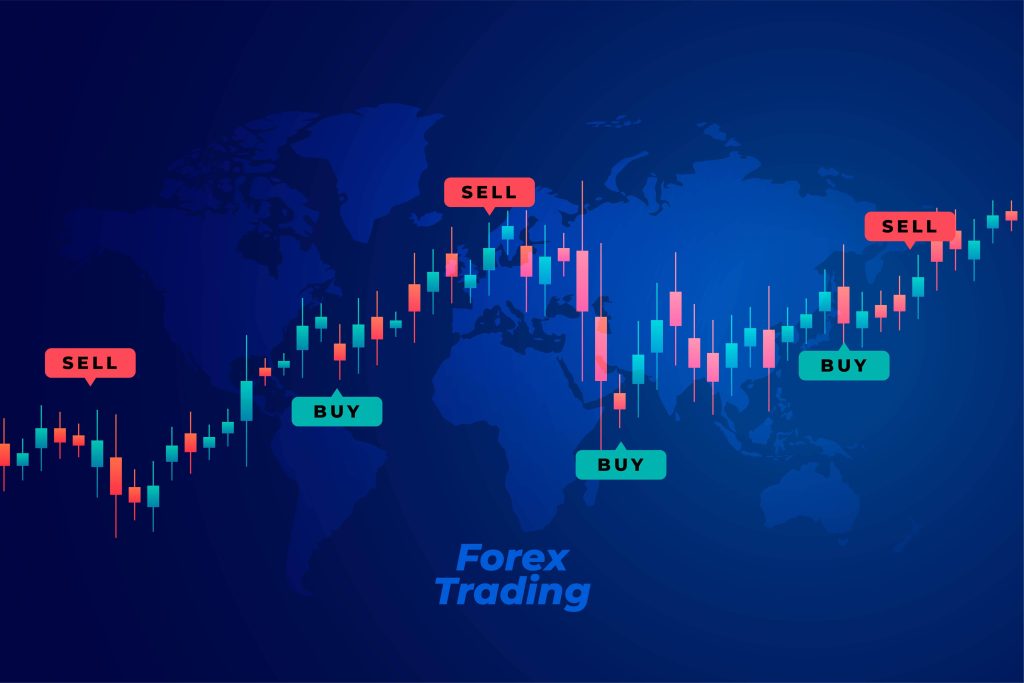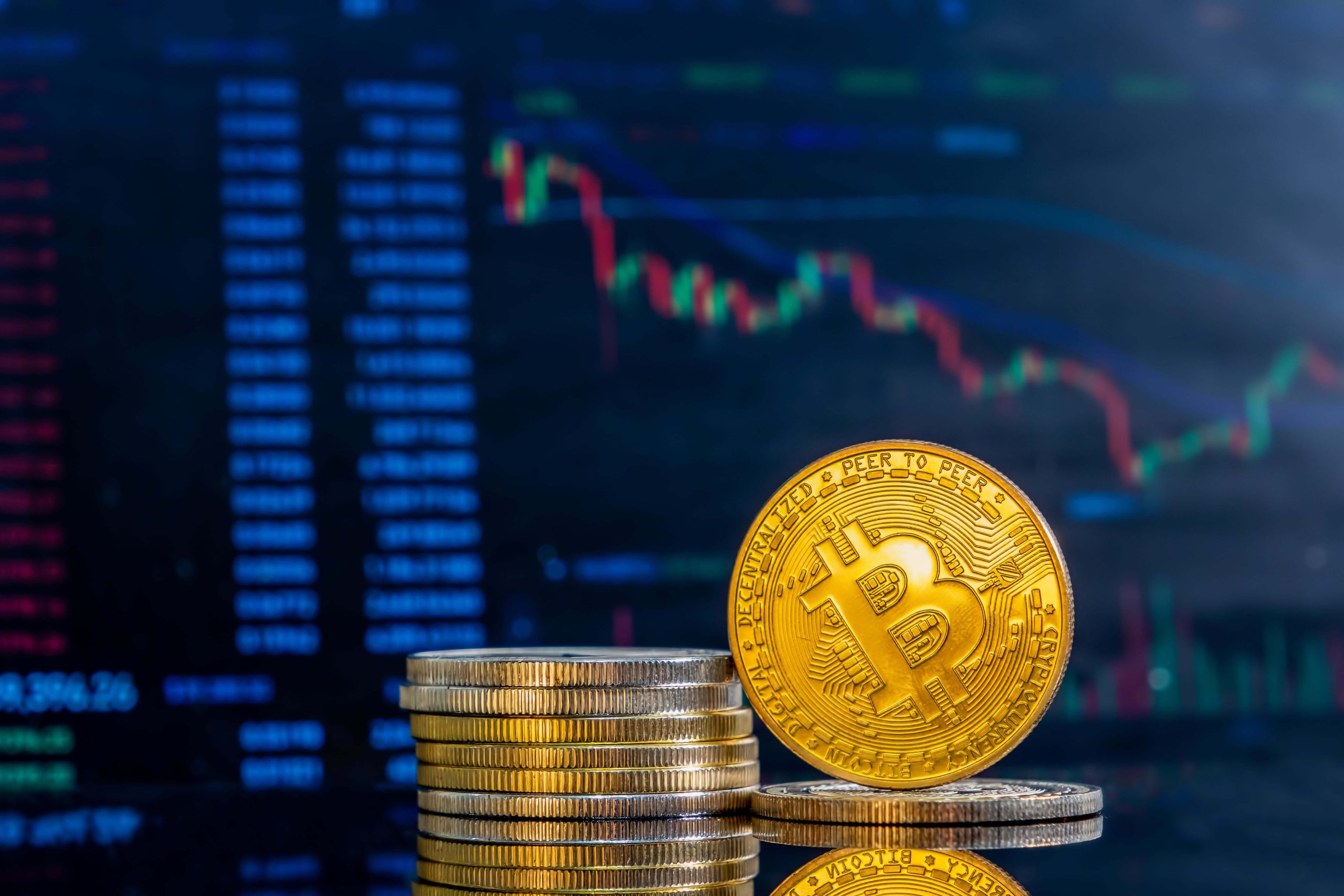One of the key distinctions between Forex and crypto lies in their market structures. Forex operates as an over-the-counter (OTC) market where trades take place directly between participants without an intermediary exchange; trading runs 24/7 across different time zones. By contrast, cryptocurrency operates on decentralized exchanges where buyers and sellers interact directly. Likewise, cryptocurrency markets remain open 24 hours a day seven days a week giving investors round-the-clock trading opportunities.
Introduction to Forex and Crypto:
Cryptocurrencies have shaken up forex trading significantly with their introduction. Originating in blockchain technology, these digital forms of currency have quickly gained prominence and acceptance throughout recent years.
Though initially seen as an alternative investment or speculative asset, cryptocurrencies are slowly emerging as an asset class within fx trading. In this article ”Exploring Cryptocurrencies as an Emerging Asset Class in Forex Trading”, we will delve into the intricacies of cryptocurrency trading, discuss their unique characteristics, and investigate their potential as a new avenue for traders.
Understanding Cryptocurrencies:

Keep in mind that crypto and forex are just like object and verb. One is meant for trading capital and other is meant for trading process. Cryptocurrencies like Bitcoin, Ethereum, and Litecoin are digital assets that utilize cryptography to ensure secure transactions and regulate unit creation. Unlike fiat currency issued or controlled by government or central bank bodies such as an exchange or central bank; instead, they operate through decentralized networks built using blockchain technology, ensuring transparency, security, immutability, and audit trails for each coin issued and traded on these exchanges.
key Characteristics of Cryptocurrencies:
Decentralization
Cryptocurrencies run on decentralized networks, meaning they do not fall under any single authority’s jurisdiction. Transactions are verified and recorded through an open network of participants rather than through Intermediary Banks or Institutions like PayPal.
Volatility
If we compare Crypto and Forex Pairs, then both markets can be highly unpredictable; however, cryptocurrency trading tends to experience greater fluctuations than forex pairs. Even minor market movements could impact crypto prices considerably and cause large price swings within one trading session. Forex pairs boast high daily trade volumes with frequent movement within narrow bands compared to other asset classes (excluding cryptos) such as stocks or ETFs – these two factors make forex attractive investments among traders.
Limited Supply
Many cryptocurrencies feature limited supply, meaning there is a finite limit on how many coins will be produced. This contributes to their gradual value appreciation over time, much like rare commodities do. In addition, this limited supply can help contribute to their price appreciation, similar to scarce commodities like gold.
Transparency and Security
Blockchain Technology ensures Transparency and Security when conducting cryptocurrency transactions. Each transaction is recorded on an unalterable public ledger, making manipulation or counterfeiting difficult; furthermore, cryptographic techniques protect funds held within digital wallets.
Cryptocurrencies and Forex Trading:

Increased Market Accessibility
Cryptocurrencies offer greater access to global fx trading for individuals. Trading them allows traders to bypass traditional financial intermediaries like banks and directly participate in fx trading.
Diversification Opportunities
Cryptocurrencies offer forex traders another method for diversification in their portfolio, helping to mitigate some risks associated with traditional currency pairs while taking advantage of cryptocurrencies’ unique qualities and volatility.
Extended Trading Hours
Cryptocurrencies offer traders more flexibility and opportunities when engaging in fx trading activities since their trading hours span 24/7 compared to traditional forex markets that operate during specific time windows.
Increased Liquidity
Now that More Traders and Investors are entering the Cryptocurrency Market, liquidity has greatly improved, leading to faster execution of trades while decreasing slippage issues.
Factors Influencing Cryptocurrency Prices:

Market Sentiment
Market sentiment is integral to cryptocurrency prices and can be driven by factors like regulatory developments, technological innovations, media coverage, or public perception.
Regulatory Environment
Regulators and financial authorities play a powerful role in cryptocurrency prices. Positive developments from governments or authorities may increase investor trust, while negative regulatory moves could bring about price declines.
Technological Advancements
Technological developments, including upgrades to blockchain networks and scaling solutions. Furthermore, increased cryptocurrency adoption by various industries may all play a part in price appreciation.
Market Manipulation
Due to digital currency markets’ relatively small market capitalization and absence of regulation, they can be vulnerable to manipulation schemes. Therefore, traders should remain wary and take proper precautions while trading crypto assets.
Risks and Challenges:

Volatility
Both Forex and Crypto markets are well-known for their volatility, yet each demonstrates distinct risk profiles. Cryptocurrencies’ high level of volatility poses significant threats for fx traders. Sudden price movements could result in significant gains or losses, making risk management strategies vitally important to their success.
Lack of Regulation
Comparable to fx markets, cryptocurrency operates under less stringent regulatory scrutiny, and this regulatory uncertainty increases security risks, fraud concerns, and market manipulation risks.
Security Concerns
Although blockchain technology offers strong protection, individual wallets and exchanges remain vulnerable to hacking or theft. Therefore, traders must exercise extreme care in their investment practices to safeguard their digital currency holdings.
Market Manipulation
Cryptocurrency markets can be vulnerable to manipulation due to their relatively low liquidity and limited oversight, so traders should remain wary and use only reliable exchanges to decrease the risks of market manipulation.
Role of a Financial Market Analyst for Forex and Crypto
Financial markets are constantly shifting and require accurate and timely information in order to make sound investments decisions. Financial market analysts play a vital role in providing this vital data – they analyze market trends, study economic indicators and give investors valuable insight. This article delves into their responsibilities and skills necessary for working within Forex (Foreign Exchange) and cryptocurrency markets, helping readers understand their value within these dynamic marketplaces. You can get details information in Financial Market Analyst for Forex and Crypto
Forex and Crypto Integration: Outlook for the Future:
As digital currency gains more mainstream recognition, its integration into fx trading will become more likely. Some Forex Brokers Provide Cryptocurrency Trading Pairs in Response to rising Investor Interest; futures and options contracts also present greater opportunities for crypto forex traders.
We can expect future advancements in crypto infrastructure, such as improved liquidity, enhanced regulatory frameworks, and increased institutional participation. This integration will likely bring more stability to decentralized money markets and attract a wider range of traders, including institutional investors.
Conclusion:
Cryptocurrencies have rapidly emerged as an exciting and disruptive asset class within fx trading. Their unique characteristics – decentralization, volatility, and accessibility – have captured the interest of traders and investors worldwide.
Recognizing the risks inherent to digital currency is crucial, such as high levels of volatility, regulatory obscurity, and security issues. Fx traders looking to explore digital currency should thoroughly assess their risk tolerance, implement robust risk management practices and remain up-to-date on market developments and regulatory updates. As cryptocurrency evolves rapidly, forex traders face opportunities and challenges when navigating this emerging asset class.

